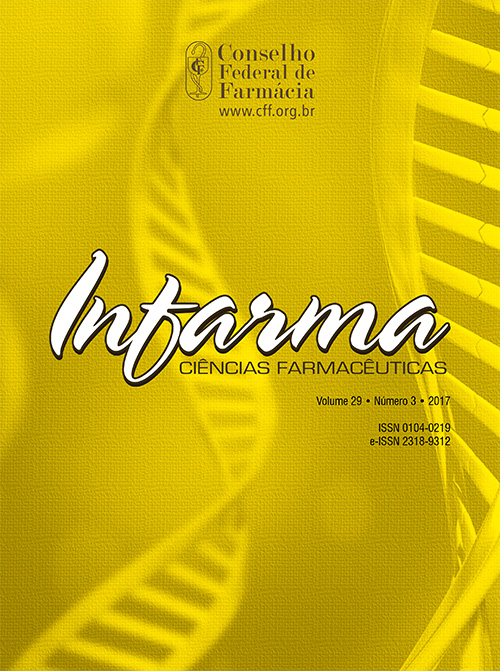ALCOHOL CONSUMPTION AMONG UNDERGRADUATE STUDENTS FROM A NUTRITION COURSE AND ASSOCIATED FACTORS
DOI:
https://doi.org/10.14450/2318-9312.v29.e3.a2017.pp241-247Keywords:
alcoholism, students, alcohol drinking in college.Abstract
This study aimed to verify the prevalence of alcohol consumption among undergraduate students from a Nutrition Course of a private institution in the city of Montes Claros, MG, Brazil. This is a descriptive study conducted between August and September of 2015 and included 152 students of the Nutrition course, over 18 years of both genders (94.7% women and 5.3% men). Two self-administered questionnaires were used. The age range was predominantly between 18 and 24 years (67%). Most of the participants reported being abstinent or low risk users (94.8%). For a minority (5.2%), the use was considered of risk in the last year and 104 (68.4%) said usually skip classes to go to pubs, parties or other events; and two (1.3%) took time off the college, demonstrating a consumption considered harmful, with possible negative consequences. A low-risk alcohol consumption was observed in the majority of students. Therefore, health promotion measures are required to reduce rates or eliminate alcohol abuse even in a small minority, extending this research to other College’s courses to improve the quality of life and school performance of the undergraduate students.
Downloads
Published
How to Cite
Issue
Section
License
Authors who publish in this journal agree to the following terms:
- Authors retain the copyright and grant the journal the right of first publication, with the work simultaneously licensed under the Licença Creative Commons Attribution which allows the sharing of work with acknowledgment of authorship and initial publication in this journal.
- Authors are authorized to take additional contracts separately, for non-exclusive distribution of the version of the work published in this journal (e.g. publish in institutional repository or as a book chapter), with acknowledgment of authorship and initial publication in this journal.
- Authors are allowed and encouraged to publish and distribute their work online (e.g. in institutional repositories or on their personal page) at any point before or during the editorial process, as this can generate productive changes as well as increase the impact and Citation of published work (See O Efeito do Acesso Livre ).


